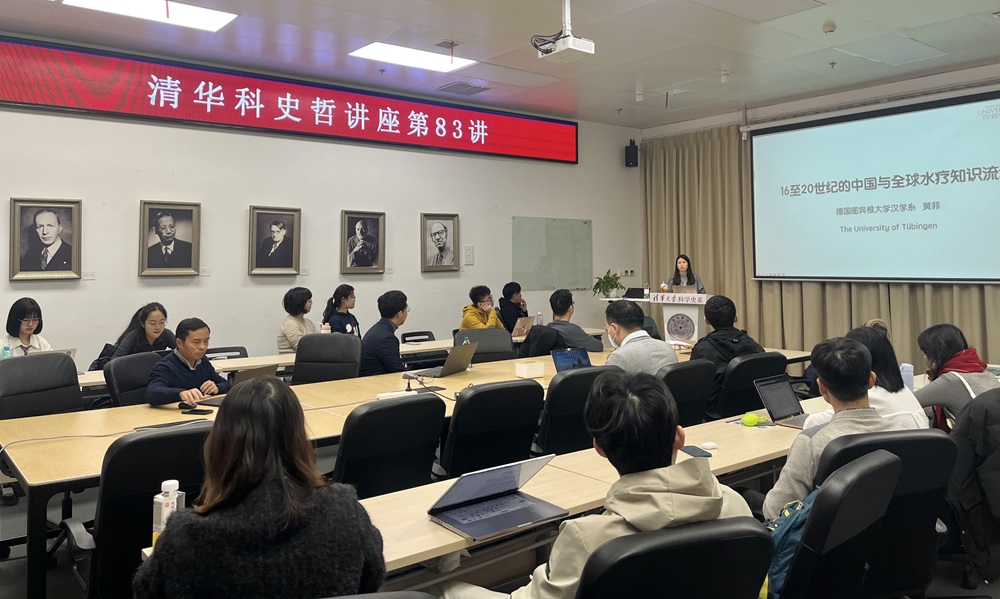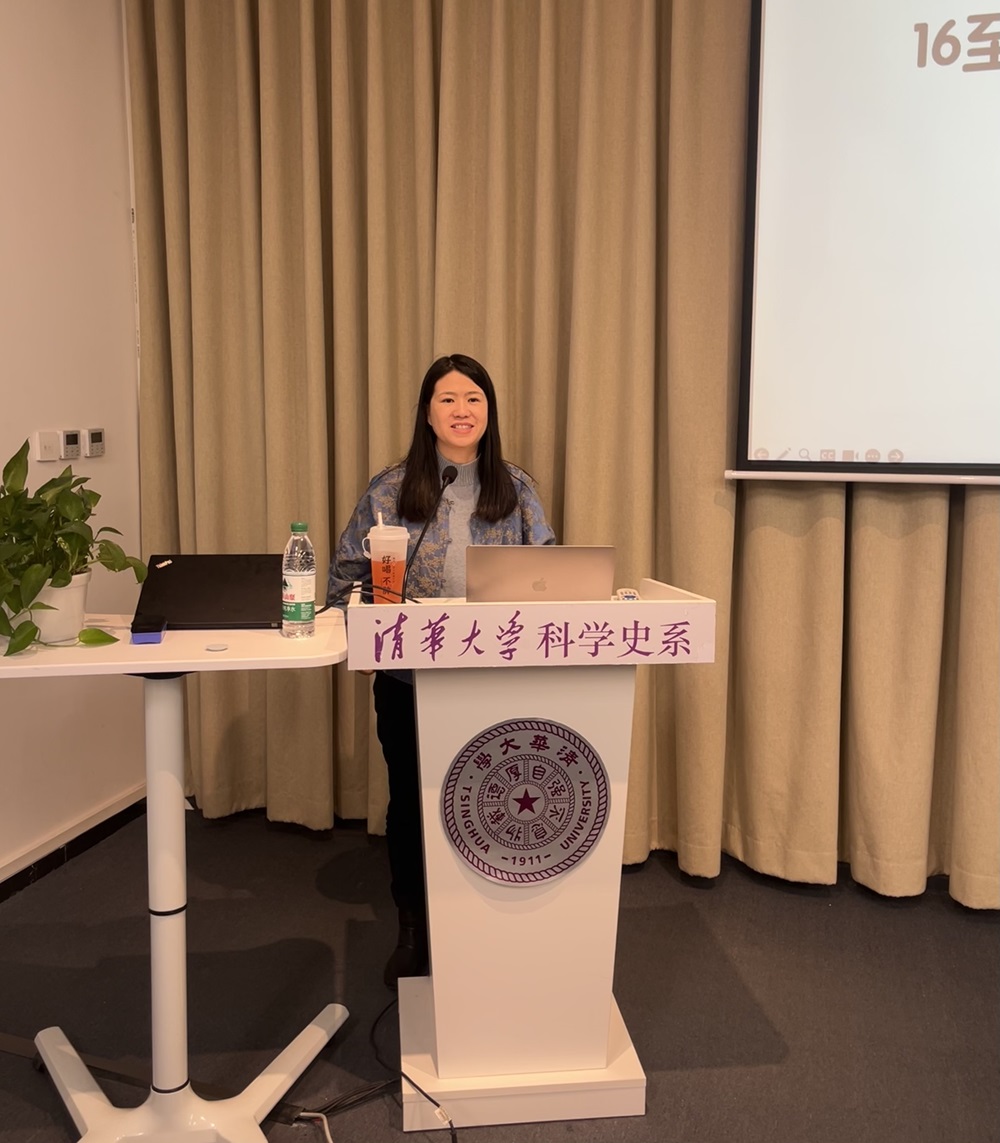On the afternoon of December 5, 2024, the 83rd session of the THU History and Philosophy of Science Lecture Series was held in Room B206 of the Humanities Building. Professor Huang Fei from the Department of Sinology at the University of Tübingen, Germany, delivered a lecture titled "China and Global Flows of Hydrotherapy Knowledge from the 16th to the 20th Century." The event was chaired by Associate Professor Shen Yubin of Tsinghua University’s Department of the History of Science.

Professor Huang Fei asserted that it is undeniable that modern Western concepts and practices of spa therapy directly influenced the development of hot springs in modern China. Building on this, the presenter sought to further explore the locally distinctive pre-modern traditions reflected in modern Chinese hot spring therapy and their interactions with modern European spa culture. Subsequently, Professor Huang Fei chronologically reviewed the knowledge and practical applications of hot springs from ancient China to modern Europe and back to modern China. She emphasized that European spa knowledge and practices diffused to China were themselves in flux. In fact, during this period, the construction and management focus of European spa resorts continually oscillated between therapeutic and recreational purposes, while the emphasis on hydrotherapeutic effects was closely tied to commercial competition. Equally noteworthy, however, was that modern Chinese hot spring practices also exhibited numerous local characteristics, such as the daily use of free hot spring bathing and folk worship traditions.

Before the Q&A session, Professor Shen Yubin presented a souvenir to the speaker on behalf of the Department. The ensuing discussion lasted considerably longer, with faculty and students engaging in in-depth exchanges with Professor Huang Fei on topics including source selection and hot spring facility development in Japanese colonial territories.
Documented by: Li Hongyu
Reviewed by: Huang Fei

